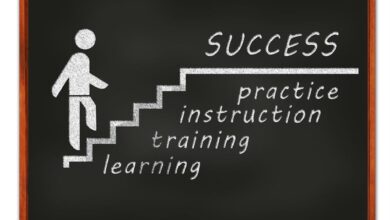Inside the New-Age Approach to Building Student Confidence

Confidence doesn’t arrive all at once. It’s built layer by layer through experience, encouragement, and discovery. In the past, students were often expected to find their footing through rigid routines and academic results alone.
But modern educational thinking is shifting toward a more holistic, student-centred approach—one that treats confidence not as a bonus but as a vital part of learning.
So, what does this new-age approach look like, and why is it transforming the way we help young people grow?
From Performance to Progress
Gone are the days when students were measured solely by grades. Today’s best programmes understand that personal growth and confidence come from focusing on progress rather than perfection.
Students are encouraged to reflect on how far they’ve come, not just how high they’ve scored. This cultivates a mindset where effort, resilience, and learning from setbacks are celebrated, and that’s where real confidence begins.
Immersive Learning as a Confidence Catalyst
The classroom is evolving. Textbooks and tests still matter, but immersive experiences are where confidence really takes root.
Whether it’s debating global issues, performing in front of an audience, or working through a group challenge, real-world applications of knowledge allow students to feel their capabilities rather than just hear about them.
Educational experiences like The King’s Summer School programmes are leading the way with their dynamic, hands-on approach. By combining academic enrichment with social and cultural experiences, students grow comfortable stepping outside their usual roles and discover strengths they didn’t know they had.
The Power of Safe, Supportive Environments
Confidence isn’t about being the loudest or most outgoing. It’s about feeling safe enough to be yourself. In modern learning environments, positive reinforcement and peer support replace fear-based discipline.
Students are encouraged to ask questions, share ideas, and take risks without fear of embarrassment or failure. That shift from judgement to encouragement makes all the difference.
Personalisation Over One-Size-Fits-All
Every student is different, and confidence-building approaches now reflect that. Whether a teen thrives in leadership roles or prefers creative expression, the most effective programmes offer space for students to flourish in their own way.
This might mean choosing elective classes, working on passion projects, or even managing aspects of their daily routine during residential experiences.
With a personalised structure, students gain autonomy, feel valued, and develop the confidence to take ownership of their journey.
Global Citizenship and Real-World Purpose
Students today want their voices to matter. New-age educational programmes don’t just prepare them for exams; they prepare them for the world.
By tackling global challenges, exploring social impact projects, and meeting diverse peers from around the globe, students begin to see themselves as contributors to something larger than their local community. That sense of purpose is a huge driver of personal confidence.
Mentorship That Empowers
Behind every confident student is someone who believed in them first. Whether it’s a teacher, facilitator, or older peer, mentors in modern learning environments focus on encouragement, not just instruction.
They ask questions, listen actively, and challenge students to think bigger. Through mentorship, students gain not just knowledge but belief in themselves.
Confidence That Lasts Beyond the Classroom
The new-age approach to confidence-building is less about teaching students to “act confident” and more about helping them to become confident—authentically, gradually, and sustainably.
With opportunities to grow through real experience, self-reflection, and global connection, students are walking into the future with more than just facts. They’re bringing curiosity, courage, and clarity.


